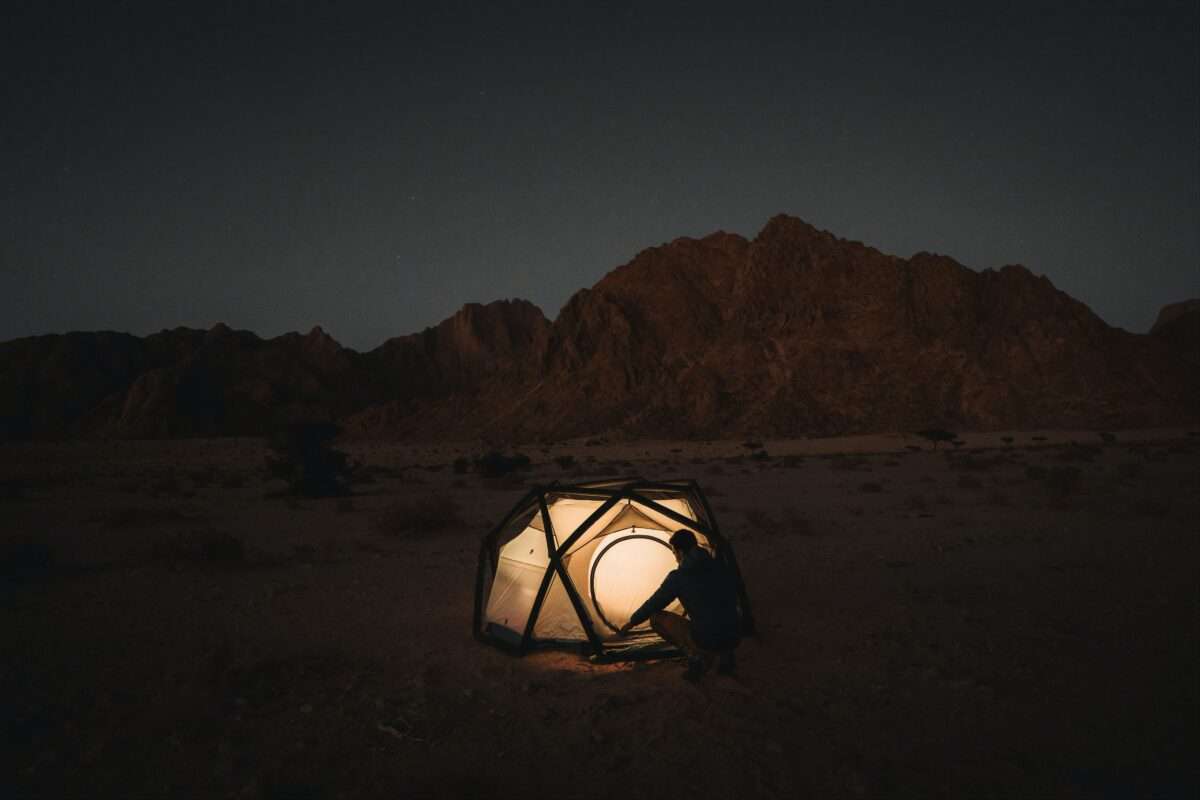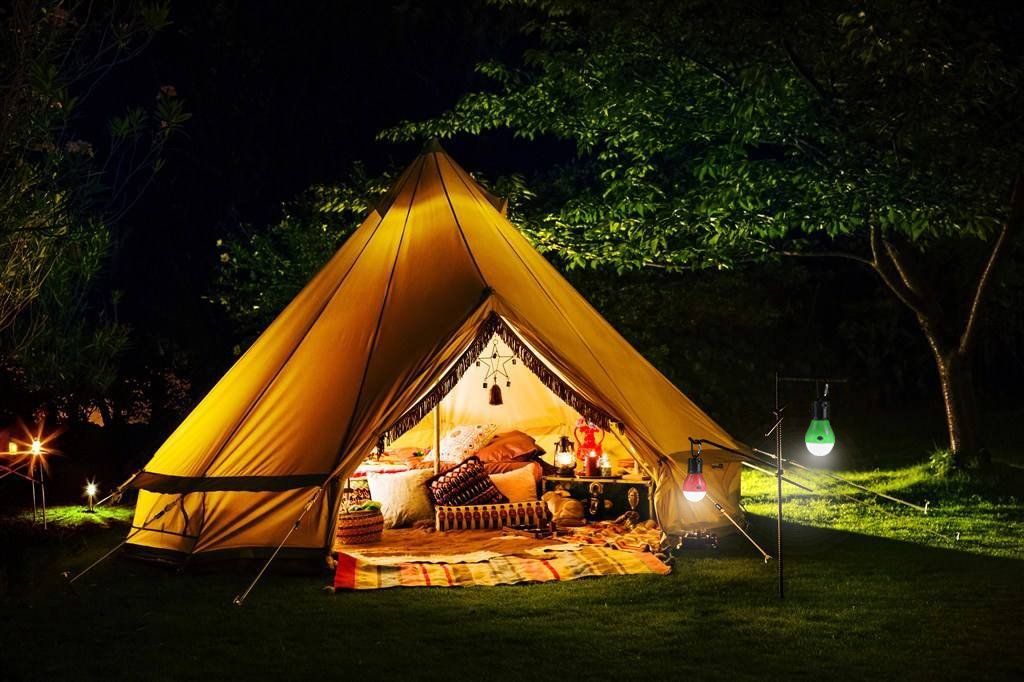Tent camping with electric hook-ups is an ideal way to blend nature and modern conveniences, creating a perfect balance between adventure and comfort. Electricity in a tent offers campers an opportunity to experience an enhanced camping trip while enjoying power for devices, appliances, and lighting systems.
What are Electric Hook-Ups?
Electric hook-ups, also known as electric pitches or campsites with electrical connections, are designated camping spots that offer a power supply for tents and caravans. These hook-ups typically provide 240V electricity, similar to the power you use at home, allowing campers to run essential electrical appliances during their stay.
Importance of Electric Hook-Ups in Tent Camping
Electric hookups offer various essential benefits that transform tent camping experiences and include:
- Device Charging: Never miss a moment or stay connected to family and friends with a constant power source to keep your phones, cameras, and tablets charged.
- Appliance Powering: Electric hookups make it easy to run heaters, coolers, electric grills, or even coffee makers, elevating your camping adventure.
- Lighting: Illuminate your campsite for better vision, improved safety, and easier navigation at night.
- Enhanced Security: Power security devices like motion-sensor lights, offer increased peace of mind.
- Entertainment: Charge portable speakers, gaming devices, and other gadgets for some evening fun.

Types of Electric Hook Ups
The market offers various electric hook-up options, each designed for specific needs and preferences:
- Basic Electric Hook Ups: These typically include a single plug socket, circuit breaker, and weatherproof casing. They’re suitable for smaller campsites with minimal power needs.
- Multiple-socket Hook Ups: These consist of two or more plug sockets, offering the flexibility to power multiple devices simultaneously. Some models have USB ports for added convenience.
- Solar-powered Hook Ups: These eco-friendly options eliminate the need for campsites with electricity supply, using solar panels to store energy during the day.
Selecting the most appropriate hook-up depends on factors like voltage compatibility, connector type, cable length, and maximum power capacity.
Safety Tips for Setting Up and Using Electric Hook-Ups for Tent Camping
Safety is paramount when dealing with electricity outdoors. Adhere to these precautions:
- Weatherproof Electrical Connections: Ensure all electrical connections, including extension cords and adapters, are weatherproof and designed for outdoor use. Use cable protectors or covers to shield connections from rain and moisture, reducing the risk of electrical hazards.
- Use Residual Current Devices (RCDs): Consider using a Residual Current Device (RCD) or a portable circuit breaker to protect against electric shocks. RCDs detect imbalances in electrical currents and automatically cut off the power supply if any fault is detected.
- Avoid Overloading Circuits: The available electrical supply at campsites is often limited. Avoid overloading circuits by using low-wattage appliances and distributing power usage throughout the day. If necessary, prioritize essential devices and avoid running multiple high-power appliances simultaneously.
- Keep Electrical Cords Tidy: Organize and secure electrical cords to prevent tripping hazards. Taping them down or using cord organizers can help minimize accidents and maintain a tidy camping area.

- Supervise Children Around Electricity: If you are camping with children, educate them about the dangers of electricity and set boundaries to keep them away from electrical connections. Children should always be supervised when handling electrical equipment.
- Check for Damaged Cords and Appliances: Regularly inspect electrical cords and appliances for signs of damage or wear. If you notice frayed cords, exposed wires, or malfunctioning equipment, refrain from using them and seek replacements or repairs.
- Disconnect When Not in Use: When appliances are not in use or when leaving the campsite, disconnect them from the power source. This prevents potential hazards and saves energy.
- Avoid Running Cords Under Tents or Vehicles: Running electrical cords under tents or vehicles can lead to damage and increase the risk of accidents. Keep cords away from high-traffic areas and avoid placing heavy objects on top of them.
- Familiarize Yourself with Emergency Procedures: Know the location of the campsite’s electrical supply box and familiarize yourself with emergency procedures in case of power outages or other electrical issues.
- Respect Campground Rules: Each campground may have specific rules and regulations regarding electric hook-ups. Comply with these guidelines to ensure the safety and well-being of all campers.
Essential Do’s and Don’ts When Using Electric Hook-Ups for Tent Camping
Adhere to these essential do’s and don’ts for safe and efficient use:
- Do’s:
Use extension cords suited for outdoor use.
Regularly inspect electrical equipment for wear and tear.
- Don’ts:
Don’t ignore potential electrical issues – always get them checked by a professional.

Valuable Maintenance Tips for Camping Electric Hook Ups
Proper maintenance of your electric hook-up will ensure its longevity:
- Keep it clean and free from dust and dirt.
- Regularly check for damage and repair or replace as necessary.
- Store properly when not in use.
How to Choose the Best Electric Hook-Up for Your Camping Needs
Before selecting the electric hook-up to meet your specific needs, consider these factors:
- Portability: Opt for compact, lightweight options that are easy to transport and don’t require complex setup.
- Power Capacity: Determine your estimated power consumption to avoid overloading or underutilizing the hook-up.
- Weather Resistance: Prioritize hookups with weather-resistant materials to protect against water and humidity.
- Safety Features: Look for electric hookups with built-in circuit breakers, surge protection, and RCDs.

How to Calculate Your Tent Camping Power Consumption
Estimate your power requirements with the following steps:
- Identify all electric appliances and devices you plan to use.
- Determine the power consumption (in watts) of each item, typically located on labels or within product manuals.
- Calculate your total power requirement by adding the wattages of all appliances to be used simultaneously.
- Ensure the chosen electric hook-up can support your overall power needs without exceeding its maximum capacity.
Electric hookups enhance the tent camping experience by providing essential amenities that cater to modern-day campers’ needs. Choose the right hook-up, adhere to safety guidelines, and calculate your power requirements for a memorable and comfortable camping experience that truly connects you with nature.
